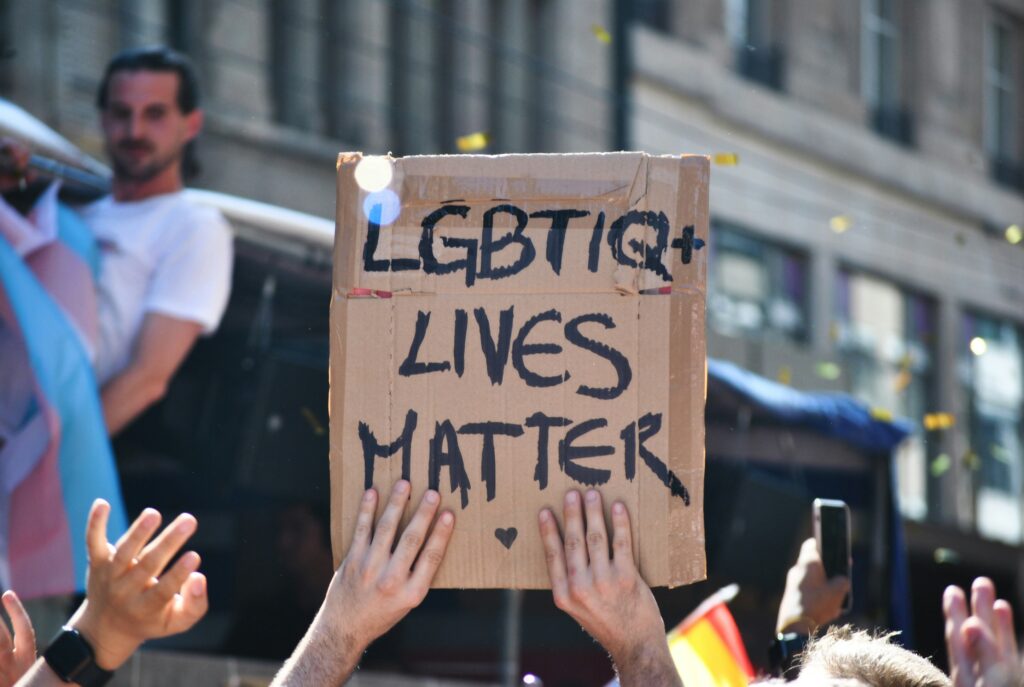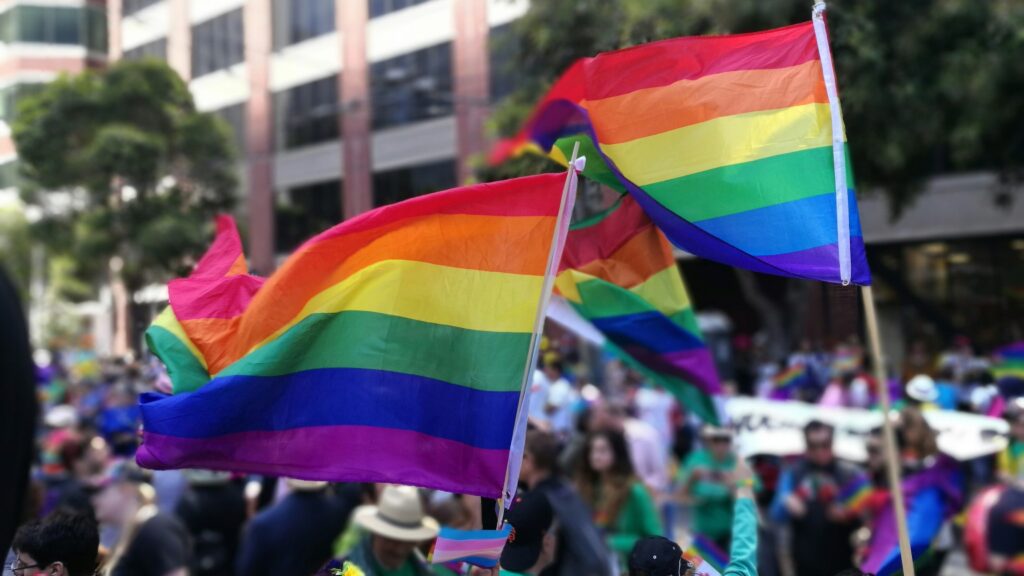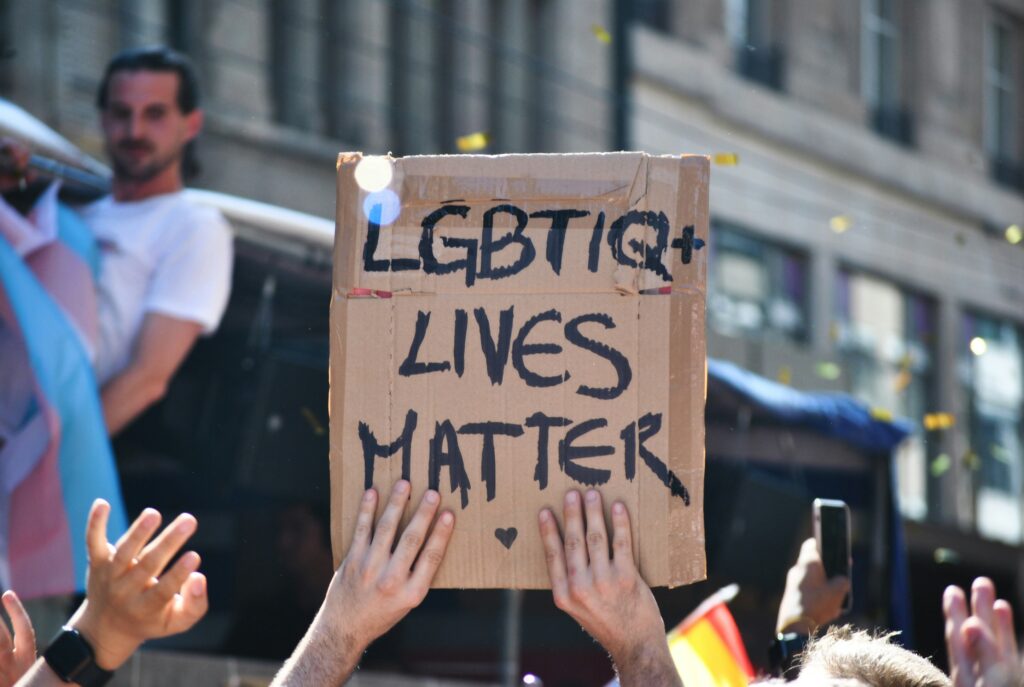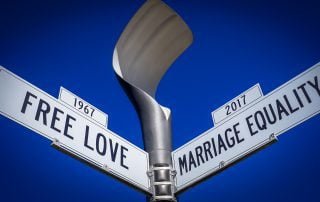The Conversion Practices Ban Bill (2024)
Following the recent passage of the Conversion Practices Ban Bill (2024) in March, ‘conversion practices,’ which have historically been used to suppress the sexual orientations and gender identities of queer people, will be illegal in NSW (the Act commences on 2 April 2025).
You can read more about the law here.

This legislation follows a trend set by Victoria, the Australian Capital Territory and New Zealand, which have all banned LGBTQ+ conversion practices in recent years. Now, with NSW’s reform, the movement towards banning these practices across the country is gaining real momentum, with the remaining states and territories (Western Australia, South Australia, Tasmania, Northern Territory and Queensland) all expressing an openness to following suit.
If this plays out, it will mark an end to the institutionalised conversion practices that have long harmed and oppressed queer people in Australia – especially the youngest and most vulnerable members of our community.
But the NSW laws were negotiated over a short time, including late night discussions in parliament about the meaning of “therapy”, and unfortunately some exceptions have been legislated, such as permitting religious prayers containing harmful messages to continue.
What does the conversion practices ban mean for NSW?
Under the new law, from 2 April 2025:
a conversion practice means a practice, treatment or sustained effort that is—
- directed to an individual on the basis of the individual’s sexual orientation or
- gender identity, and
- directed to changing or suppressing the individual’s sexual orientation or gender identity.
But, the following expressions are not considered conversion practices if the expression is not part of a practice, treatment or sustained effort, directed to changing or suppressing an individual’s sexual orientation or gender identity—
- an expression, including in prayer, of a belief or principle, including a religious belief or principle,
- an expression that a belief or principle ought to be followed or applied.
Private parenting discussions about the sexuality of children, and decisions of parents to take a particular view on sexuality and gender, are not considered conversion practices.
Dowson Turco’s view is that any communication to a vulnerable member of the community about homosexuality, gender dysphoria or bisexuality being “sick”, “against the word of God”, “disgusting” or an “abomination” (and everything in between) should be outlawed, because of the harm that words can do.

The history of anti-LGBTQ+ conversion practices
(Content warning: discussion of violence against LGBTQ+ people)
Since the 1970s, conversion practices have often operated under the guise of positive medical, educational, religious or spiritual procedures designed to ‘cure’ individuals of their LBGTQ+ identities.
In reality, these practices involved horrific beatings, forced medication and verbal abuse, all of which carried out with the message that queer people are ‘sick,’ ‘unnatural,’ or ‘broken,’ and that the inhumane treatment they endured in the course of these practices was for their own good. In the most extreme cases, conversion practices could be far more severe, and many survivors of these practices have reported that they are still affected by ongoing trauma and grief. Hollywood has also depicted these practices in the groundbreaking adaptation Boy Erased.
The impression of hateful and heteronormative ideologies upon queer youth in Australia throughout this period (including today) has resulted in many queer people growing up with an essential part of their identity being shamefully locked away.
In many cases, gay or lesbian victims who survived these practices eventually found themselves in heterosexual relationships out of obligation to their families or religious communities, sometimes even going on to marry and have children with their opposite-sex partners, contrary to their genuine sexual identities.1
Likewise, transgender individuals subjected to conversion practices were taught that it was wrong for them to express themselves in line with their true gender identities, and as a result, were forced to live out much of their lives in dysphoria.
Conversion practices in modern Australia
Although you may not hear about conversion practices being performed in the present day, there is an abundance of evidence from victim-survivors conclusively indicating the hidden continuation of these procedures in recent years – such was the basis for the Conversion Practices Ban Bill (NSW). A report by the Human Rights Centre, Preventing Harm, Promoting Justice (2018), identified ten organisations publicly advertising conversion practices in Australia and New Zealand. According to their research, up to 10% of LGBTQ+ Australians are still vulnerable to harmful conversion therapy practices.
The recent legislative reform in NSW was a huge step in the right direction and is cause for celebration among the LGBTQ+ community, the victim-survivors of past conversion practices, and the allies who helped fight for it.
Contact us
Dowson Turco Lawyers is Australia’s only Out Loud and Proud® LGBTQA+ law firm, servicing all communities. If you need legal assistance in relation to a discrimination matter, or any matter concerning your gender or sexual identity, our team of empathetic and experienced lawyers are happy to help. Get in touch by emailing us at enquiries@dowsonturco.com.au or calling 02 8000 7300. You can also visit our Facebook page or connect with us on LinkedIn.
[1] Jones, T, Brown, A, Carnie, L, Fletcher, G, & Leonard, W. Preventing Harm, Promoting Justice: Responding to LGBT Conversion Therapy in Australia. Melbourne: GLHV@ARCSHS and the Human Rights Law Centre, 2018.


